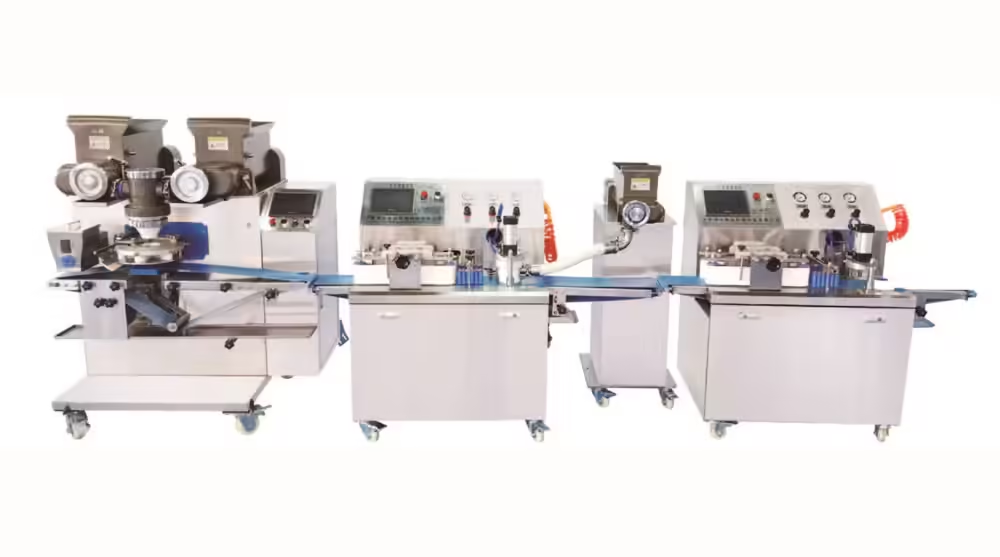



The food industry has witnessed a significant transformation with the integration of special machines designed to enhance efficiency, ensure product quality, and meet the growing demands of consumers. These specialized machines cater to various processes, from preparation and processing to packaging and distribution. This buyer’s guide aims to provide a comprehensive overview of special machines in the food industry, assisting businesses in making informed decisions when investing in such equipment.
Special machines in the food industry are tailored equipment designed to perform specific tasks within the food production process. Unlike standard machinery, these machines address unique challenges, such as handling delicate products, maintaining hygiene standards, and automating complex processes. Their applications span across various sectors, including bakery, dairy, meat processing, and ready-to-eat meals.
When evaluating special machines for your food production needs, consider the following features:
In the special machines food industry, mixing and blending machines are fundamental for ensuring uniformity and texture in food products. These machines handle a wide range of ingredients, from powders to viscous liquids, enabling consistency in formulation. Advanced models allow for programmable settings that improve precision and repeatability. This makes them ideal for large-scale production lines requiring dependable performance.
Cutting and slicing machines are essential special machines in the food industry used to increase efficiency and accuracy. Whether processing vegetables, meats, or baked goods, these machines reduce labor time while ensuring uniform product sizes. Many modern units are programmable and can handle variable thicknesses or cuts. Their hygienic stainless steel designs also ensure compliance with food safety standards.
Filling and dosing systems are a core category of special machines food industry manufacturers depend on for portion control. These machines accurately dispense liquids, semi-liquids, or powders into containers or packaging. Precision dosing not only improves consistency but also reduces product waste and contamination risk. High-speed models can seamlessly integrate with packaging lines to support continuous operation.
Cooking and frying equipment represent a vital segment of special machines in the food industry, particularly for ready-to-eat or processed foods. These machines are designed to maintain exact temperatures and times, resulting in consistent flavor and texture. Automated systems can reduce human error while improving safety. They are also energy-efficient, meeting sustainability targets for modern production facilities.
Packaging and sealing machines are indispensable special machines food industry enterprises use for final product delivery. These systems wrap, seal, or vacuum-pack items to preserve freshness, extend shelf life, and maintain hygiene. Many include smart sensors for quality assurance and tamper detection. Their versatility makes them suitable for a variety of food formats including liquids, solids, and frozen goods.
| Machine Type | Primary Function | Common Applications |
|---|---|---|
| Preparation Equipment | Initial processing of raw materials | Washing, peeling, cutting |
| Processing Equipment | Transforming ingredients into products | Mixing, grinding, fermenting |
| Packaging Machines | Sealing and packaging products | Vacuum sealing, wrapping |
| Inspection Machines | Quality control and safety checks | Metal detection, X-ray scanning |
| Material Handling Equipment | Moving products within the facility | Conveying, lifting, sorting |
When selecting special machines, consider:
Regular maintenance ensures the longevity and optimal performance of special machines. When purchasing, inquire about:
Investing in special machines for the food industry can revolutionize your production process, ensuring efficiency, consistency, and compliance with safety standards. As the industry evolves, staying updated with the latest machinery innovations is crucial for maintaining a competitive edge.
Ready to enhance your food production with specialized machinery? Contact us today to explore our range of special machines tailored for the food industry.
What are special machines in the food industry?
Special machines in the food industry refer to customized or highly specialized equipment used for tasks like cutting, mixing, cooking, packaging, and quality control. These machines are designed to optimize efficiency, ensure food safety, and maintain product consistency. Unlike general-purpose equipment, they cater to unique production needs or regulatory standards. Manufacturers often tailor them for specific food types or processing environments.
How do I choose the right special machine for my production line?
Choosing the right special machines for the food industry involves assessing your product type, production volume, hygiene requirements, and automation goals. It’s also crucial to evaluate machine compatibility with existing systems and future scalability. Consulting with industry experts or equipment providers can help define a solution that balances performance and investment. Always consider maintenance needs and technical support availability.
Are special machines food industry compliant with global standards?
Yes, most special machines in the food industry are designed to comply with global hygiene and safety standards, such as ISO, CE, or FDA guidelines. Manufacturers ensure these machines use food-grade materials, like stainless steel, and are easy to clean and sanitize. Many also integrate traceability systems to support food safety audits. Always confirm certifications and documentation before purchase.
Can special machines be customized for different food products?
Absolutely. One of the advantages of special machines in the food industry is their flexibility and ability to be tailored for specific processes or ingredients. Whether you’re processing dairy, meat, bakery items, or beverages, custom modifications can optimize yield and product quality. Engineers can adapt machine settings, tool heads, and material flows to suit diverse needs. OEM and ODM services are often available.
